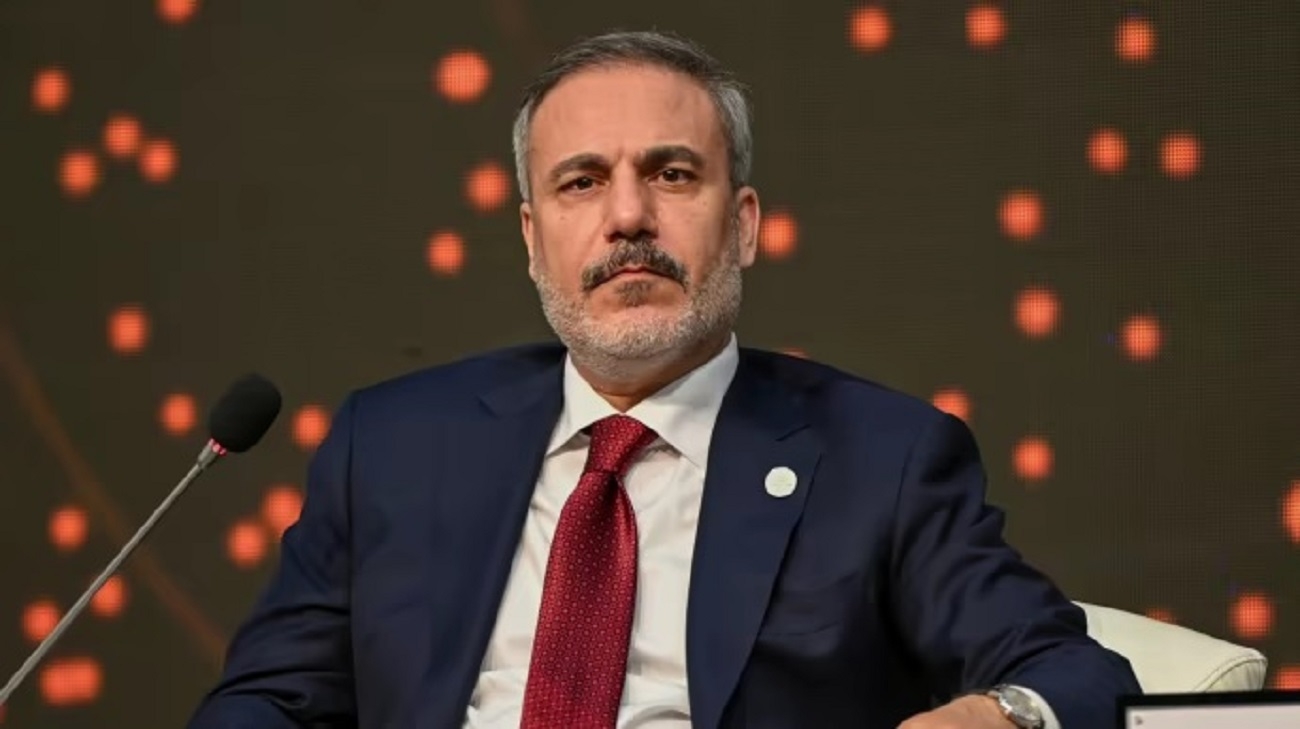Cyprus: New era in KKTC
Prime Minister-designate Talat, in remarks to the Turkish Daily News by telephone, said both parties had "worked in goodwill" and agreed on establishing a "communal reconciliation and settlement government." He said a joint committee was now putting the final touches on a coalition protocol and a government program that he expected would be presented to Parliament early this week.
Accord on general outlines
Talat said that as there was full consensus between the two parties on the general outline of the coalition protocol and on the distribution of seats in the Cabinet, he did not expect any further hitch that could stall the establishment of the CTP-DP coalition government. He said that immediately after President Rauf Denktas’s return from Istanbul — where he met with Prime Minister Recep Tayyip Erdogan over Turkish preparations on changes to be sought in a U.N. settlement plan on Cyprus — he would present the Cabinet list. Today is the last day of a 15-day mandate President Denktas gave to Talat to form a government.
Talat did not elaborate on the details of the coalition protocol outline of his CTP and the DP but underlined that the two parties had agreed to establish a "communal reconciliation and settlement" government.
A snag on the distribution of Cabinet seats between the two parties delayed earlier plans of Talat and his coalition partner, DP leader Serdar Denktas, to present the Cabinet list to President Denktas on Saturday before he flew to Istanbul for the meeting with Erdogan.
Talat confirmed that the DP demand for the finance and interior ministries had created some problems but said the hitch was eradicated through the common goodwill of the two parties.
"In the past our demands to hold the finance and interior ministries were rejected each and every time on grounds that these portfolios must be held by the senior coalition partner. This time we said the same thing. If there was a ban preventing us from having those ministries by making us the first party of the government, the Turkish Cypriot electorate has overruled that ban," he joked.
Talat said, however, though his party was very keen on also handling the Foreign Ministry portfolio, he had agreed to offer that post to the DP on the condition that it is occupied by Serdar Denktas, who will also be deputy prime minister.
"By having the foreign ministry portfolio, Serdar Denktas will also be actively involved in the peace talks process," he said.
Cabinet list out today
"We have reached a result. … We will present the Cabinet to the president tomorrow," Talat said earlier Sunday at a joint news conference with Serdar Denktas in announcing the successful completion of the coalition talks. He said the CTP and the DP have agreed to establish a 10-member "national reconciliation and settlement government."
Talat said four portfolios in the new Cabinet would be handled by DP deputies: 1- the foreign and defense ministry; 2- the economy and tourism ministry; 3- the labor and social security ministry; and 4- the agriculture and forestry ministry.
He said his CTP would retain 1- the education and culture ministry; 2- the interior ministry; 3- the public works ministry; 4- the health ministry; 5- the youth and sports ministry; and 6- the finance ministry.
Talat said that while he would be prime minister, Serdar Denktas would be deputy prime minister but would also handle the foreign and defense ministry portfolio.
Target: Settlement by May
Talat emphasized that the new Turkish Cypriot government has a consensus on the resumption of the Cyprus peace talks on the basis of a U.N. blueprint, long opposed by President Denktas.
He said the foremost aim of the coalition government, as was apparent from its name, was to achieve a communal reconciliation, establish domestic harmony, leave behind the tensions of the election period and progress in harmony for a settlement on the island through a common position with Ankara.
Talat said his CTP and the DP had not yet compiled their position regarding immediate steps to be taken for the resumption of peace talks. He said the Cyprus talks process would be continued in conformity with a joint position to be established between northern Cyprus and Turkey.
"Turkish preparations on the changes desired in the Annan plan have not yet been completed. We also will make contributions to that document. It will take time to establish a common position," said Talat, underlining that the ultimate aim of the new government would be to seek a settlement on Cyprus by May 1 — the deadline for the European Union accession of the island.
Asked by reporters whether his government would say "yes" to a referendum on the Annan plan, Talat said the Greek Cypriots as well were withholding a bonafide "yes" on the issue. "We will say ‘yes’ to a referendum on a compromise text at a date mutually agreed upon by the two sides," he said.
"We will work in sincerity for a settlement on Cyprus," Talat said
Speaking at the press conference, DP leader Serdar Denktas stressed that there had been intense pressure on both the CTP and the DP to refrain from establishing a coalition government but added that the only alternative to a CTP-DP coalition were fresh elections, which would not serve the Turkish Cypriot people.
He said the new government would work for communal reconciliation and explore a settlement on the island "by respecting each other’s sensitivities."
He said the CTP-DP coalition would be a contribution to the consolidation of the democratic understanding and communal reconciliation of the Turkish Cypriots and to a settlement on the island.
"We have accepted the risks and taken this step," he said.
Talat’s CTP backs the U.N. peace plan for Cyprus, while the DP of Serdar Denktas is critical of the plan. Serdar Denktas has been demanding substantive changes in the document.
The Dec. 14 Turkish Cypriot parliamentary elections left the Republican Assembly evenly balanced between supporters and opponents of the U.N. plan. The CTP won the most seats in the polls but failed to secure a majority. Together with the DP they have 26 seats in the 50-member assembly, the required number for a majority in Parliament. Providing that President Denktas approves the Cabinet, the government must then win a vote of confidence in Parliament.


